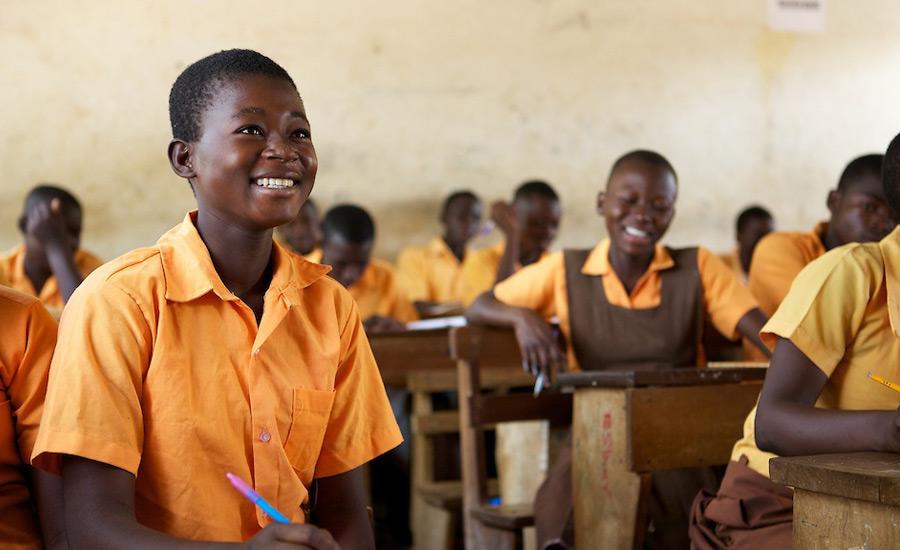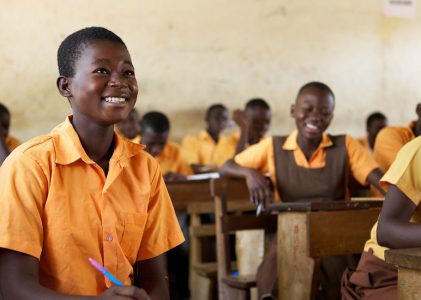Introduction
Humanitarianism and aid work has historically been categorized by the extension of relief to communities and nations by international organizations and well-organized outfits. However, a growing amount of aid work is being executed by grassroots groups and organizations in communities all over the world. This is known as citizen aid. Citizen aid is characterized by individual citizens taking-up the mandate to address community issues by providing aid and humanitarian services to improve the lives of others in their immediate vicinities.
To gain further insights into citizen or grassroots aid in Ghana, I interviewed two women who are actively engaged in humanitarian work in their communities in Ghana. The first interview was done with Afua Gyimah Baah, the Founder and Director of Empowered Kids Foundation, Ghana, and the second interview was with Ama (not her real name, she does not want her identity included in the blogpost) who worked actively with her father, a clergy leader, in supporting developmental projects in a community in Ghana.
Empowered Kids Foundation is an NGO dedicated to improving the lives of children with special needs in Ghana. One of the missions of the organization is to promote inclusive education for children with special needs in Ghana who are often discriminated against and, in certain instances, isolated from their peers in the community and in schools. Afua shared that her motivation for starting this foundation was to ensure that children with special needs felt like they are worthy and can also educate themselves to achieve the dreams they have just like their peers who had no special needs. Though her vision was to improve the lives of these children, some of the positive unintended consequences have been the change of attitude towards children with special needs. In some Ghanaian communities, children with disabilities are seen as “a curse from the gods” and parents caution their children from associating with them with a fear that through this association, their own children will somehow be “infected” with the disability. Through Afua’s outreach projects in schools, individuals in local communities have become enlightened on issues concerning disabilities and how crucial it is for special children to receive support from their family and the community as a whole.
The second interviewee, Ama, worked with her father to provide basic social amenities in certain communities in Ghana. This was part of the social responsibility of the church her father was heading, and as a member of the church she was engaged in planning and executing these projects.
Both respondents however cited inadequate funds as one of the limitations to citizen aid. Most of these grassroot groups depend on individual, family or small-scale funding avenues to fund projects. Another cause for concern is the resistance from some community members depending on the nature of projects that is to be carried out.
First Contact
To reach a relevant interviewee for the chosen ComDev topic, I reached out to a professional network of Rotary International leaders in Ghana and asked for recommendations of individuals they know who are engaged in citizen aid. Afua Gyimah Baah came in highly recommended as an individual who has great insight as she currently runs an NGO. I received her phone number and contacted her via WhatsApp. We then set a date for our meeting, after which I shared a Zoom meeting link we could both use for the interview.
For the in-person meeting, Ama was recommended by a mutual contact because of the service projects she participated in with her dad when she lived in Ghana.
Rapport during the interviews
One of the essential features of the interview that was not compromised on was rapport building. A positive and lively rapport was built from the beginning of the interview by sharing short introductions of ourselves and connecting on some of our shared interests and experiences in aid work. This eased-out the air of formality and made the respondents feel they could freely share their thoughts.
Another aspect that improved the rapport during the interview was the shared cultural experiences in relation to humanitarian work. The interviewees were Ghanaians and owing to our shared heritage, it was easy to understand certain details that were shared throughout the interview. This provided moments of laughter, smiles, and introspection which added a personal touch to our connection throughout the interview.
In addition to this, I maintained engagement by actively listening to the respondents when they were speaking, nodding, and affirming their responses with comments and smiles. On occasion, I asked relevant follow-up questions to reassure them that I understood something they had explained and perhaps needed some more contexts to it.
Differences between the two interviews
Three open-ended questions were developed for both interviews, however there were some visible differences between the face-to-face interview and the interview conducted via Zoom. The face-to-face interview felt more relaxed and natural partly because it was conducted in the respondent’s home. The interview seemed more open and authentic whereas the Zoom interview felt quite formal and structured even though there were certain moments of ease. It was also observed that rapport building took longer to be established in the online interview session as compared to the in-person interview. It was easier to establish rapport in the in-person interview because I was hosted in the interviewee’s home which was a familiar space for her. The online interview started-off very formal and eased out eventually as we went through the interview.
Personal learning and its impact on academic writing practices
This exercise provided practical insights into the use of interviewing techniques as a key tool in qualitative research. Though interviews are a great resource in gaining deeper insights into a research topics, interview settings must be carefully crafted and questions well-formulated to enhance the interviewing experience and provide an atmosphere where respondents do not feel restricted. Standardized and closed-ended questions that are posed on a Likert-scale are not a useful tools in qualitative research as these limit the respondents from fully expressing their perspectives about a particular subject. This could lead to more subjective reports devoid of nuance and well-developed thoughts.
From a professional and academic perspective, this interview exercise reinforced the value of interview as an important tool for data gathering. It is however crucial to develop relevant questions that improves knowledge sharing and promotes an open environment where respondents feel listened to and understood.
By Anita Esi Otoo

